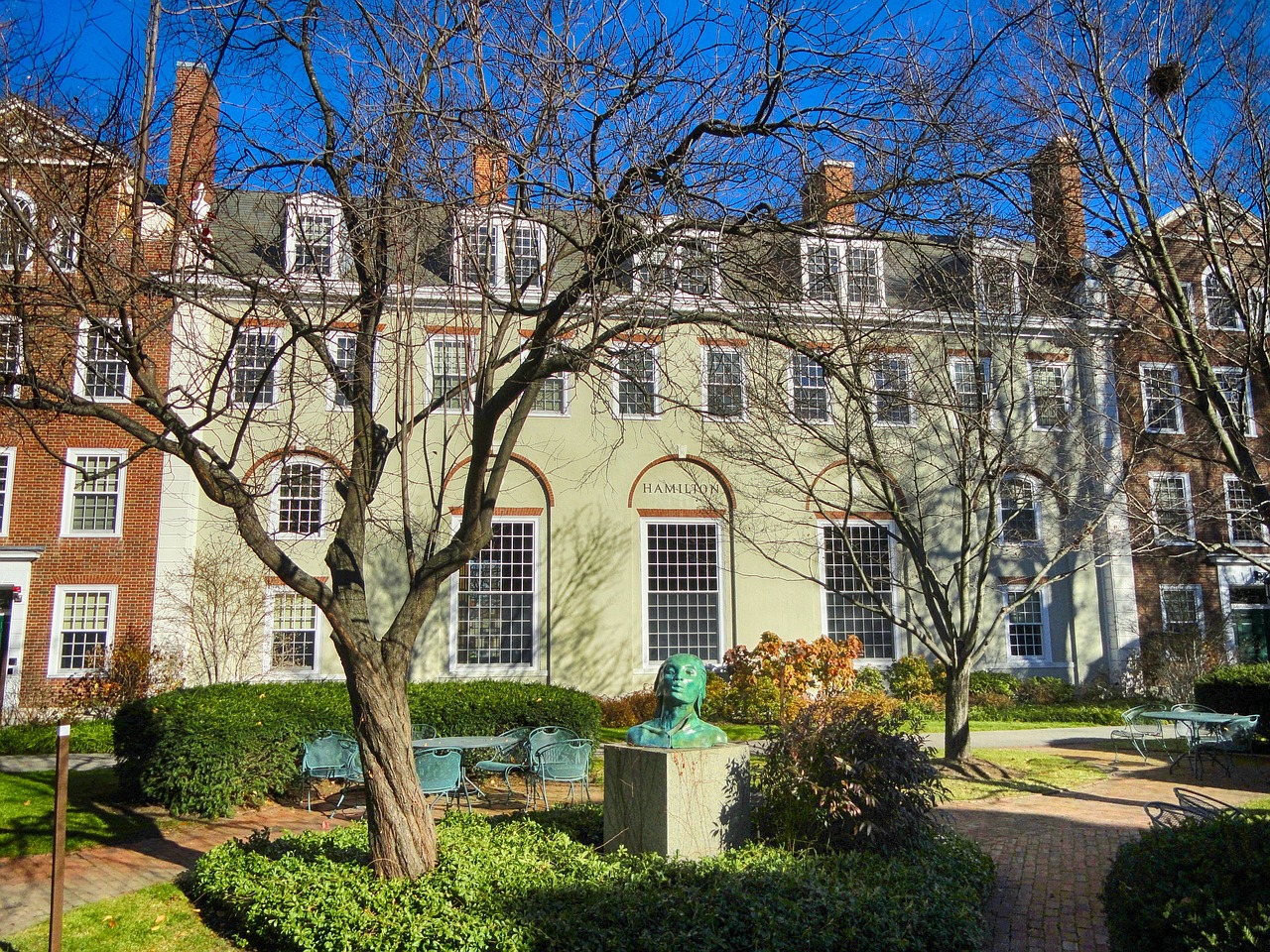Factors to Consider When Choosing the Best Places to Live in Germany
Choosing one of the best cities to live Germany raises an essential question: “What makes a city attractive for migration?” Factors such as climate, cost of living, job opportunities, and educational prospects play a key role in making a city an ideal choice for relocation. To help you choose the best one, here are the factors to consider:
- Safety: Safety is a key consideration when choosing a city. Munich stands out as Germany’s safest city, with low crime rates and strong community services. Other cities like Nuremberg, Stuttgart, Frankfurt, and Freiburg also rank highly, while larger cities like Berlin and Cologne tend to experience more petty crime.
- Cost of Living: Think about your daily expenses, including housing, transportation, groceries, and entertainment. Cities like Munich and Frankfurt can be pricey, but places like Berlin and Leipzig often provide more budget-friendly living options.
- Job Opportunities and Salary: Choose a city that aligns with your career goals. Berlin and Stuttgart are great for tech and automotive jobs, while Frankfurt shines in finance. Keep in mind that each city has its own average salary levels and minimum wages.
- Education: If you’re moving with family or for studies, consider the quality of schools and universities in your destination city. Germany boasts top institutions, with Munich, Berlin, and Heidelberg known for their prestige. Families should explore cities offering strong educational facilities and international school options.
- Climate: The climate varies across Germany and should be considered when choosing a city to live. The southwest, like Freiburg, is mild and sunny; the northwest, including Hamburg, is cooler and wetter due to the North Sea; the northeast, like Berlin, has cold winters with Siberian fronts; and the southeast, with Munich, experiences cold winters, warm summers, and snow from the Alps.
Top 10 Best Places to Live in Germany
To help you find the best place to live in Germany, here are the 10 best cities to live in Germany.
Berlin
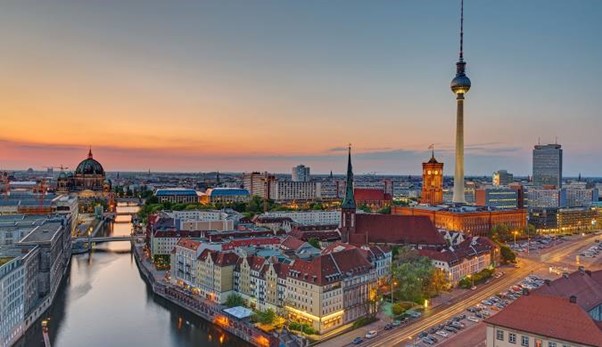
Language: Standard German or Berlinerisch
Universities: Free University of Berlin, Humboldt University of Berlin, Technical University of Berlin
Cost of Living: €2,000 monthly
Rent:
- 1-Bedroom: €881.18 (Outside City Centre) – €1,220.39 (City Centre)
- 3-Bedroom: €1,688.29 (Outside City Centre) – €2,218.75 (City Centre)
Berlin, ranked 18th in the Mercer Quality of Life Survey, is the best place to live in Germany, especially for young adults and students. The city blends rich history with modern living, featuring landmarks like the Brandenburg Gate and Berlin Wall, alongside vibrant neighborhoods such as Kreuzberg and Prenzlauer Berg. Berlin is also known for its green spaces, with a third of the city covered in parks, lakes, and rivers, offering a peaceful and enjoyable environment.
As one of the largest student cities in the world, Berlin attracts international students with affordable living, top universities, plentiful student accommodation in Berlin, and a thriving startup scene. The city’s growing tech and business sectors also provide excellent job opportunities for young professionals. With a diverse expat community and an open-minded atmosphere, Berlin is a welcoming and exciting city for newcomers, offering the perfect balance of culture, career opportunities, and quality of life.
Munich
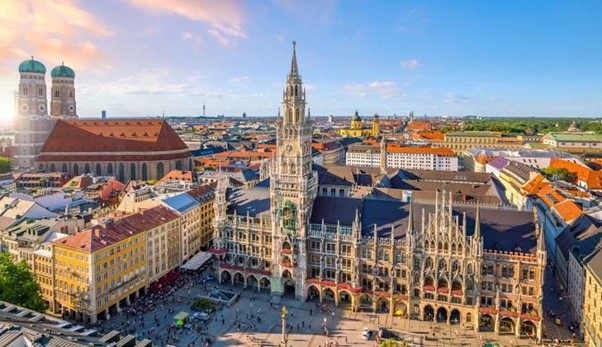
Language: German, Turkish & Arabic
Universities: Technical University of Munich, Ludwig Maximilian University of Munich
Cost of Living: €1,700 monthly
Rent:
- 1-Bedroom: €1,213.41 (Outside City Centre) – €1,446.31 (City Centre)
- 3-Bedroom: €2,148.75 (Outside City Centre) – €2,805.12 (City Centre)
As the capital of Bavaria, Munich is renowned for its high standard of living, robust job market, and iconic attractions, including stunning architecture, beer gardens, and Oktoberfest, being recognized as one of the best cities to live Germany. Munich strikes a perfect balance between urban excitement and natural beauty, featuring expansive green spaces like the Englischer Garten. As Germany’s safest city, Munich is an ideal destination for families, offering a diverse, vibrant community, with around 38% of residents coming from international backgrounds.
This international atmosphere is also evident in Munich’s student population, with 16% of residents being international students. Ranked as the second-best student city in the world, Munich attracts students to neighborhoods like Schwabing, which is close to universities. The city’s natural beauty, with easy access to the Bavarian Alps, further enhances the student experience. Munich also provides a welcoming environment for expats, making it easy for newcomers to integrate into the local community.
Hamburg
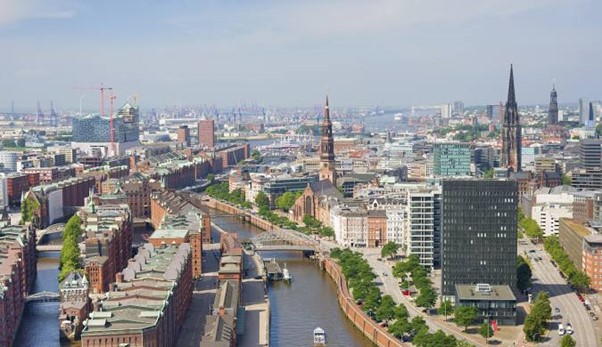
Language: Standard High German
Universities: University of Hamburg, Hamburg University of Technology, University of the Federal Armed Forces Hamburg
Cost of Living: €1,500 monthly
Rent:
- 1-Bedroom: €785.12 (Outside City Centre) – €1,097.03 (City Centre)
- 3-Bedroom: €1,460.71 (Outside City Centre) – €2,064.00 (City Centre)
Hamburg, situated along the Elbe River, is often called the ‘Gateway to the World’ and considered one of the most vibrant cities in Germany. The city is renowned for its bustling port that has played a significant role in global trade for centuries. With over 2,000 bridges, more than Venice and Amsterdam combined, Hamburg offers a picturesque landscape and a unique maritime atmosphere. Its famous St. Pauli district, once home to the Beatles, is a lively area known for its nightlife and rich cultural history.
As Germany’s economic hub, Hamburg thrives in industries such as media, entertainment, aviation, renewable energy, and logistics, offering abundant job opportunities. While not as internationally diverse as Munich or Berlin, Hamburg attracts expats, particularly in sectors like media and finance, making it an appealing destination for professionals. The city’s strong job market and high standard of living ensure a comfortable lifestyle for both residents and newcomers.
Nuremberg
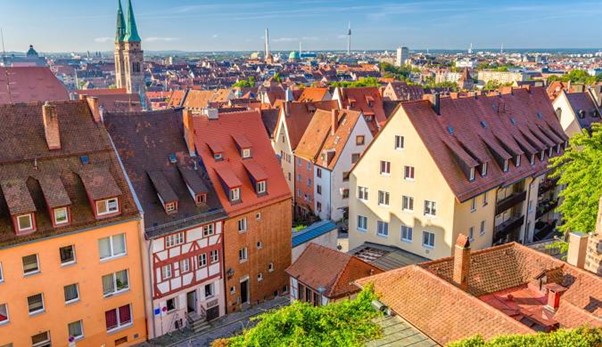
Language: Nermbercherisch
Universities: Nuremberg Institute of Technology, Lutheran University of Applied Sciences in Nuernberg, Academy of Fine Arts, Nuremberg
Cost of Living: €1,400 monthly
Rent:
- 1-Bedroom: €646.58 (Outside City Centre) – €852.90 (City Centre)
- 3-Bedroom: €1,250.40 (Outside City Centre) – €1,437.50 (City Centre)
Nuremberg is a city that seamlessly combines history, culture, and natural beauty, making it one of the nice places to live in Germany. With scenic parks like the Pegnitz River Valley and Hesperides Gardens, residents enjoy plenty of outdoor recreation. ItsOld Town (Altstadt) is home to iconic landmarks, including Nuremberg Castle and the Church of Our Lady, offering a fascinating glimpse into the city’s medieval heritage.
In addition to its rich history, Nuremberg boasts a strong economy, with job opportunities in engineering, IT, and transportation from major employers like Siemens and MAN. The city also offers modern healthcare and a low crime rate, ensuring a high standard of living. Its vibrant community is reflected in events such as the International Human Rights Award, the Bardentreffen festival, and its famous Christmas Market, one of the oldest and most beautiful in Germany.
Stuttgart
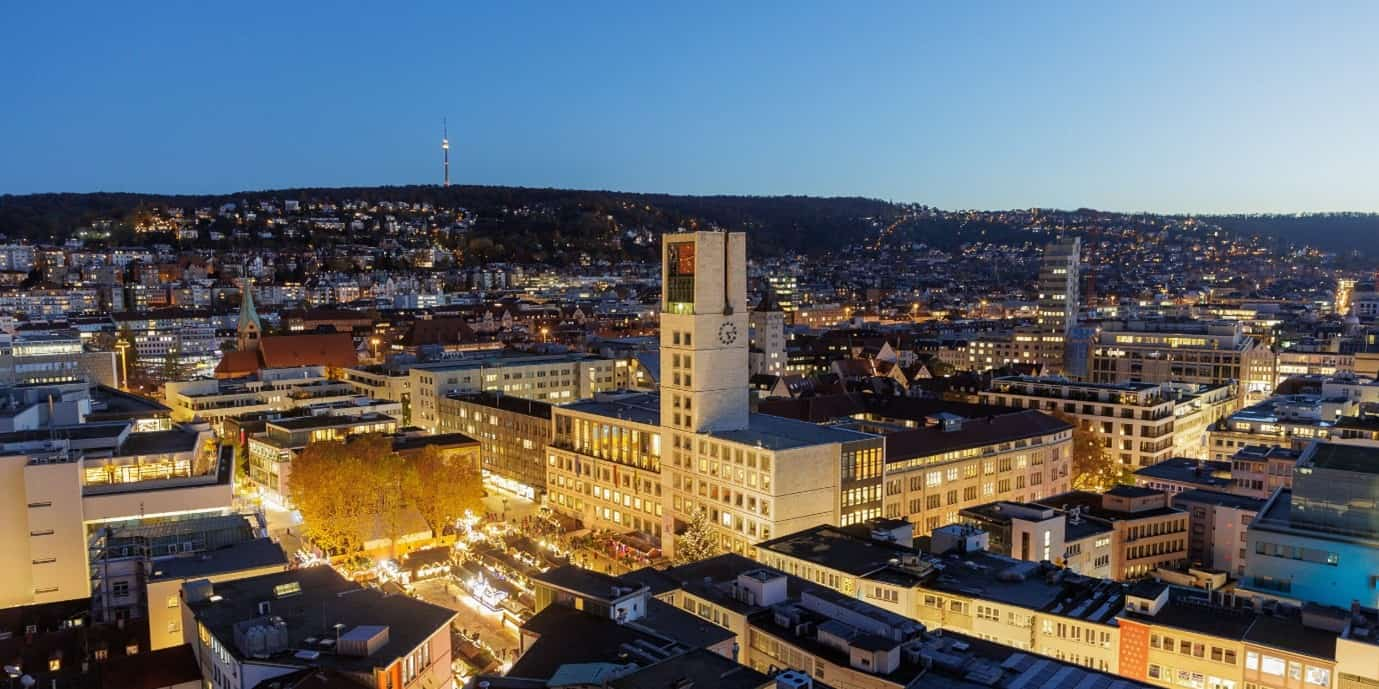
Language: Swabian, Low, & High Alemannic
Universities: University of Stuttgart, University of Hohenheim, Stuttgart University of Applied Sciences
Cost of Living: €1,900 monthly
Rent:
- 1-Bedroom: €878.44 (Outside City Centre) – €1,115.00 (City Centre)
- 3-Bedroom: €1,473.53 (Outside City Centre) – €1,934.19 (City Centre)
Stuttgart, nestled in the charming Swabian region, is renowned for its automotive industry, being home to luxury car brands like Porsche and Mercedes-Benz. It has a thriving economy fueled by both major automotive giants and exciting start-ups. Stuttgart’s universities attract international students, with about 20% coming from abroad, especially those pursuing engineering. Moreover, its excellent public transport system and abundance of international schools make it the best place to live in Germany with family, especially family with children.
Beyond its industrial prowess, Stuttgart is surrounded by stunning vineyards and mountains, offering a perfect balance of city life and nature. The city enjoys a warmer climate than most of Germany, making it especially appealing in the summer months. And, of course, no visit is complete without trying Maultaschen, the city’s beloved stuffed pasta. With endless career opportunities, a high quality of life, and a rich cultural scene, Stuttgart truly has something for everyone, making it a top choice for expats and professionals looking to live, work, and thrive.
Frankfurt

Language: Standard High German & Hessian Dialect
Universities: Goethe University of Frankfurt am Main, University of Banking of Frankfurt, Frankfurt University of Applied Sciences
Cost of Living: €2,505 monthly
Rent:
- 1-Bedroom: €939.13 (Outside City Centre) – €1,283.38 (City Centre)
- 3-Bedroom: €1,540.48 (Outside City Centre) – €2,268.75 (City Centre)
Frankfurt, known as ‘Mainhattan’ due to its skyline reminiscent of Manhattan, is Germany’s financial capital. The city offers a vibrant cultural scene, with highlights such as the Städel Museum for art enthusiasts and the Palmengarten Botanical Garden for nature lovers. For music lovers, Frankfurt is home to some of the best music schools in Germany. The city is also famous for Apfelwein, a local apple wine, often paired with Handkäse mit Musik, a dish of cheese, onions, and vinegar.
In addition to its vibrant cultural scene, Frankfurt is a hub for education and career growth. The city boasts several universities offering English-taught courses, particularly in finance, making it an attractive destination for international students. With major companies like JP Morgan, Boeing, and PwC based here, Frankfurt offers numerous internship and career opportunities, especially in the financial sector. The city’s extensive public transport system also ensures easy commuting, making it a convenient place to live and work in Germany.
Cologne
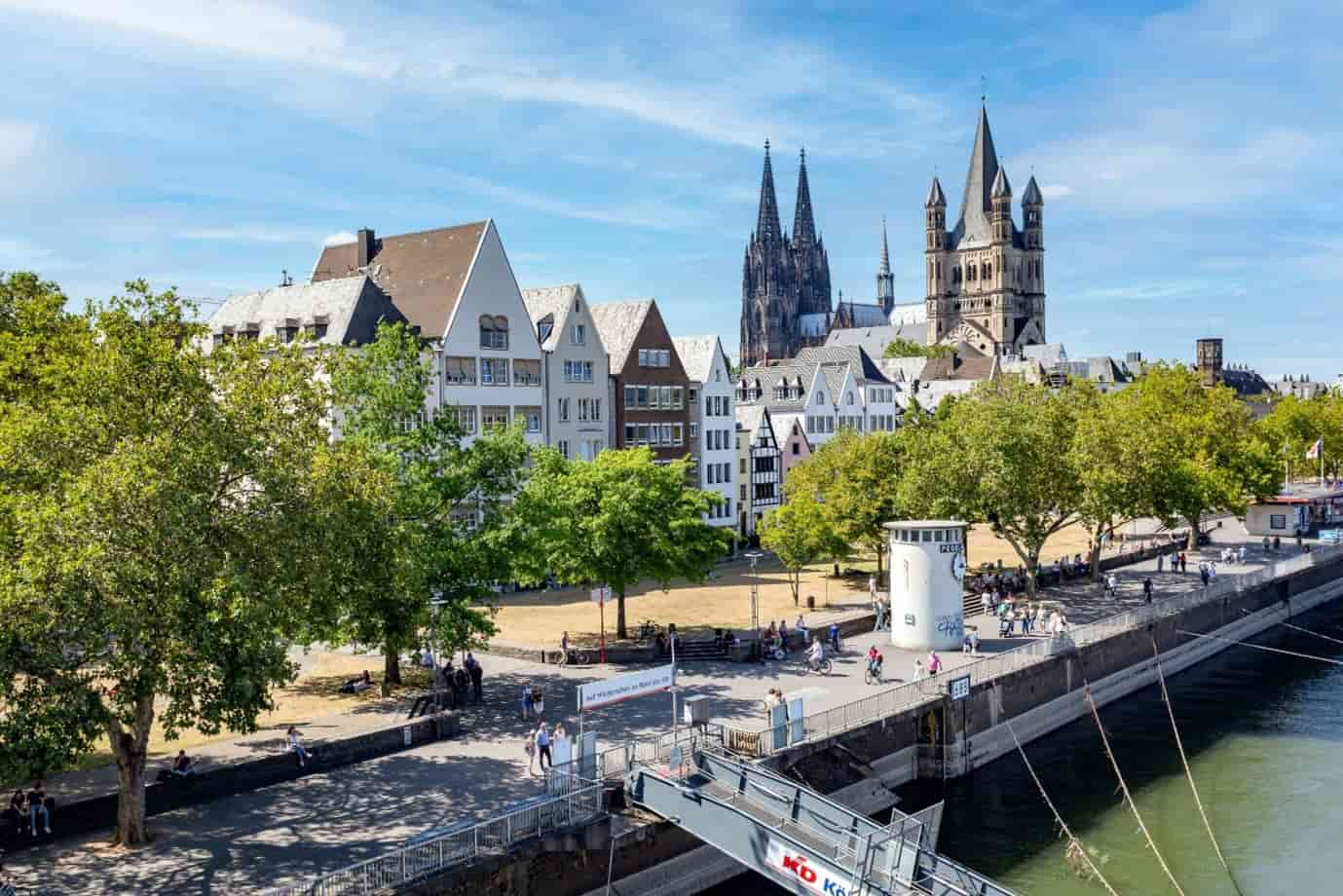
Language: Colognian Dialect (Kölsch)
Universities: University of Cologne, German Sport University Cologne, Cologne University of Applied Sciences
Cost of Living: €1,500 monthly
Rent:
- 1-Bedroom: €791.25 (Outside City Centre) – €1,027.94 (City Centre)
- 3-Bedroom: €1,311.92 (Outside City Centre) – €2,041.67 (City Centre)
Cologne is a nice city in Germany for its Cologne Cathedral and vibrant annual Carnival, drawing millions of visitors each year. The city has a friendly and open-minded local population, making it a welcoming place for newcomers. Colognians are known for their love of Kölsch beer, and the city’s 24 breweries ensure plenty of opportunities to enjoy this local drink. Whether you’re strolling along the Rhine River or enjoying BBQs and boat cruises, Cologne offers a lively atmosphere for all.
Cologne is also well-connected, making it easy to visit nearby cities like Amsterdam, Paris, and Brussels in just a few hours. The city is a hub for the media industry, with a strong presence of radio, television, and publishing companies. Additionally, the logistics sector, centered around the Cologne Bonn airport, provides numerous job opportunities. Cologne’s central location and affordable living also make it a popular choice for students, offering a vibrant academic scene and a welcoming expat community.
Leipzig
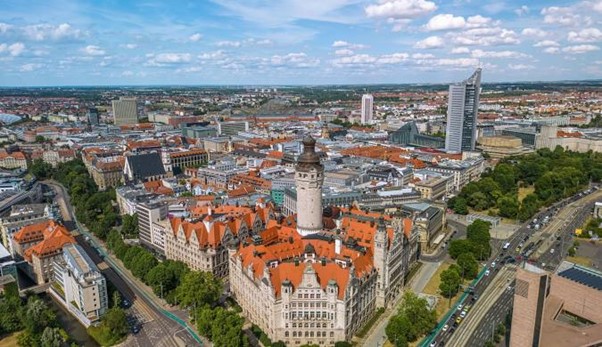
Language: Leipzigerisch
Universities: University of Leipzig, Leipzig University of Applied Sciences, HHL Leipzig Graduate School of Management
Cost of Living: €1,500 monthly
Rent:
- 1-Bedroom: €487.69 (Outside City Centre) – €721.58 (City Centre)
- 3-Bedroom: €963.75 (Outside City Centre) – €1,314.44 (City Centre)
Leipzig, with a population of nearly 630,000, is the largest city in East Germany and a popular destination for students, attracting around 40,000 annually, including 11% internationals. The city is well-connected, home to Europe’s largest terminus station and Leipzig/Halle Airport, offering flights across Europe. It also hosts major companies like Porsche, BMW, and Amazon, making it a thriving business hub.
Once an industrial powerhouse, Leipzig is now a vibrant cultural center, ranking 4th in a European survey for its high quality of life. The city is known for its family-friendly atmosphere, excellent air quality, and growing start-up scene. With its beautiful historic buildings, rich music scene, and local dish Leipziger Allerlei, Leipzig is considered one of the best places to live in Germany for young adults and professionals.
Heidelberg

Language: German
Universities: Heidelberg University, Heidelberg University of Education, Heidelberg University of Applied Sciences
Cost of Living: €1,600 monthly
Rent:
- 1-Bedroom: €740.91 (Outside City Centre) – €1,023.33 (City Centre)
- 3-Bedroom: €1,636.36 (Outside City Centre) – €2,262.50 (City Centre)
Why Heidelberg is ranked in the list of best places to live in Germany? Heidelberg is nestled along the scenic banks of the Neckar River, renowned for its breathtaking natural beauty and historical charm. The city is framed by rolling hills and lush forests, providing stunning views at every turn. A highlight is the iconic Heidelberg Castle, which towers over the city, offering panoramic vistas of the surroundings. For a more tranquil experience, visitors can walk the Philosophenweg (Philosopher’s Walk), a peaceful path with historical significance, perfect for soaking in the city’s picturesque landscape.
With a Quality of Life Index of 211.52, Heidelberg is an excellent place to live, offering a high standard of living. The city is also home to the Heidelberg Center for Cultural Heritage, a research institution dedicated to preserving cultural landmarks. Additionally, Heidelberg is renowned for its local delicacy, the Heidelberger Studentenkuß, a chocolate treat unique to the city. With its blend of natural beauty, cultural heritage, and quality of life, Heidelberg is a top choice for those seeking an ideal place to call home.
Freiburg im Breisgau

Language: Low Alemannic
Universities: University of Freiburg, Catholic University of Applied Sciences in Freiburg, Freiburg University of Education
Cost of Living: €1,500 monthly
Rent:
- 1-Bedroom: €723.33 (Outside City Centre) – €1,033.33 (City Centre)
- 3-Bedroom: €1,400.00 (Outside City Centre) – €1,737.50 (City Centre)
Freiburg, located in the heart of the Black Forest, is renowned for its rich cultural heritage and stunning Gothic architecture. The city’s historic old town is home to picturesque squares and notable landmarks, such as the Freiburg Cathedral, Augustiner Museum, and Colombischlössle Archaeological Museum. In addition to its cultural treasures, Freiburg is often called the “Green City” due to its commitment to sustainability, with extensive parks, gardens, and eco-friendly practices that highlight the city’s environmental consciousness.
Beyond its cultural and green initiatives, Freiburg is famous for its high-quality asparagus from the fertile Kaiserstuhl region, as well as local delicacies like “Badisches Ochsenfleisch,” a traditional beef dish. The city also offers a variety of regional wines and is a haven for outdoor enthusiasts, providing ample opportunities for hiking in the Black Forest and cycling around town. With its mild climate, picturesque streets, and commitment to sustainability, Freiburg truly stands out as one of the best places in Germany to live.
Conclusion
Germany offers a variety of cities to match different lifestyles. Berlin is perfect for students with its growing tech scene, while Munich is known for its high living standards and safety. Cologne stands out for its strong media and logistics sectors, and Frankfurt and Stuttgart offer great opportunities in finance and automotive industries. Freiburg and Heidelberg are ideal for those who appreciate natural beauty and a high quality of life.
By considering factors like cost of living, job opportunities, safety, and education, you can easily find one of the best places to live in Germany that fits your needs.
FAQs about
The happiest residents in Germany live in Hamburg, with a score of 7.38 points, followed by Bavaria and Schleswig-Holstein, both with 7.23 points. In contrast, Mecklenburg-Western Pomerania scored 6.17 points, and Berlin scored 6.63 points.
The safest city in Germany is Munich, with a safety index of 79.29. The city consistently ranks high for its low crime rates and excellent traveler security, making it a great destination for solo female travelers and anyone looking for a stress-free experience.
Germany is an excellent place to study and live, offering world-class universities, a wide range of study programs, and a strong focus on research and innovation. With 458,210 international students, Germany ranks among the top three countries globally for attracting international students.
Munich. It has been the city with the lowest crime rate in Germany for six consecutive years. Besides, Mainz, Bielefeld, Nuremberg, and Stuttgart also rank highly in safety index.
Munich, the best city to live in Germany, offers a high standard of living and a strong job market, making it an attractive destination for students worldwide.
The best German cities for foreigners are Berlin, Munich, Frankfurt, Düsseldorf, Hamburg, and Stuttgart.






